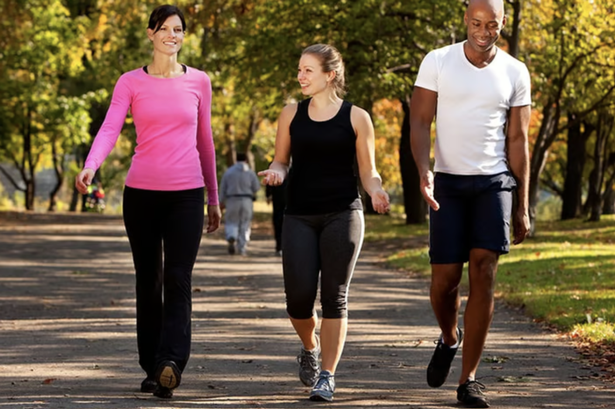
A recent study conducted by researchers at the University of Sydney challenges the long-held belief that walking 10,000 steps daily is essential for optimal health. The findings indicate that a more attainable target of 7,000 steps may significantly reduce the risk of various health issues. This research, which reviewed data from numerous global studies involving tens of thousands of adults, highlights the protective effects of increased daily walking.
Specifically, the study found that individuals who walked 7,000 steps daily experienced a 25% lower risk of heart disease, a 14% reduction in type 2 diabetes risk, a 38% drop in dementia risk, and a 22% reduction in depression rates. Furthermore, participants who achieved this step count were 47% less likely to die during the study’s follow-up periods compared to those who only walked 2,000 steps per day. While the research underscores the benefits of walking more, researchers noted that aiming for 10,000 steps is still advisable for even greater health outcomes.
To help individuals incorporate more steps into their daily routines, fitness expert Andy Carr, master trainer and head of fitness for Snap Fitness UK, offers practical strategies.
Simple Strategies to Increase Daily Steps
Carr suggests that a simple change in parking habits can make a difference. By choosing a parking spot further from the workplace entrance, individuals can add valuable minutes to their daily walk. “It might only add a minute or two to your walk, but over the course of a week, it makes a difference,” he explains.
For those who commute, arriving at work 15 to 20 minutes early to take a walk around the block is another effective strategy. Carr advocates for walking meetings as well, especially in office settings. “Walking meetings are particularly good for in-person meetings. We have a couple of parks near our office, so we often go for walks around one of those during a meeting,” he notes. This not only promotes physical activity but also enhances teamwork.
Carr also emphasizes the importance of regular movement throughout the day. He recommends setting reminders to stand up and walk every hour, which can increase Non-Exercise Activity Thermogenesis (NEAT). This refers to the calories burned through everyday activities that are not considered structured exercise. “If you’ve got a day stacked with calls, and you’ve got a five-minute break at the end of them, get up and have a stretch and go for a walk around the house or the office,” he advises.
Incorporating technology into daily routines can also aid in increasing step counts. Carr mentions the rising popularity of walking pads, which can be used during meetings or while watching television. “They are a great way to get some movement and extra steps in during activities that you’d usually be sedentary for,” he suggests.
Maximizing Movement in Daily Life
Simple lifestyle changes can further enhance daily walking. Carr advises opting for stairs instead of lifts or escalators as a quick method to elevate heart rates and boost step counts. Additionally, he encourages individuals to utilize television time for movement. “Try pacing during ad breaks or marching on the spot while watching your favourite show. It might feel a bit odd at first, but it’s an easy way to move more without sacrificing your downtime,” he explains.
Household chores and gardening present excellent opportunities for physical activity. Carr recommends spreading out tasks throughout the week rather than saving them for weekends. “There are various jobs around the house that can all add to your step count activity such as hoovering, cleaning, and mowing the lawn,” he states.
Finally, he suggests rethinking social outings. Instead of meeting friends for coffee or meals, consider suggesting a walk. “It’s a great way to catch up, get some fresh air, and move at the same time,” Carr notes. Participating in local parkrun events can also foster community engagement while promoting an active lifestyle.
By incorporating these strategies, individuals can work towards reaching that beneficial 7,000-step daily mark, ultimately enhancing their health and well-being.







